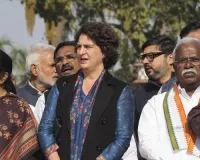All-India Muslim Jamaat welcomes passage of Waqf Bill in LS

The national president of All-India Muslim Jamaat, Maulana Shahabuddin Razvi Barelvi, on Thursday welcomed the passage of the Waqf (Amendment) Bill, 2025, in the Lok Sabha, expressing hope that it will bring significant economic relief to the underprivileged Muslims.
"I extend my gratitude to all the Lok Sabha members who voted in favour of the Bill, and congratulate the government of India for taking this commendable step," Razvi said in a statement. He also said the proposed amendments would curb the alleged irregularities in Waqf properties, which, according to him, were previously being misused by vested interests in collusion with land mafias.
"The original intent of Waqf was to support the poor, weak, and the orphans. But its revenues were instead being pocketed by a select few. Now, with this Bill, we hope to see positive changes and economic upliftment of the underprivileged Muslims," Rizvi added.
Expressing confidence that the Bill would be passed in the Rajya Sabha as well, Razvi said it marked a crucial step in addressing corruption and ensuring that Waqf resources serve their intended purpose.
The Lok Sabha early Thursday passed the contentious Waqf (Amendment) Bill, 2025, after over 12 hours of debate, which saw the ruling NDA strongly defending the legislation as beneficial for minorities, while the opposition described it as "anti-Muslim".
The Bill was passed with a 288-232 vote after all the amendments moved by the opposition members were rejected by voice votes.
According to the Bill, Waqf tribunals will be strengthened, a structured selection process will be maintained, and a tenure will be fixed to ensure efficient dispute resolution.
As per the Bill, while Waqf institutions' mandatory contribution to Waqf boards is reduced from 7 per cent to 5 per cent, Waqf institutions earning over Rs 1 lakh will undergo audits by state-sponsored auditors.
Also, a centralised portal will automate Waqf property management, improving efficiency and transparency.
The Bill proposes that practising Muslims (for at least five years) can dedicate their property to the Waqf, restoring pre-2013 rules.
It also stipulates that women must receive their inheritance before the Waqf declaration, with special provisions for widows, divorced women and orphans.
An officer above the rank of collector will investigate government properties claimed as Waqf, as per the Bill.
It also proposes that non-Muslim members be included in the central and state Waqf boards for inclusivity.









